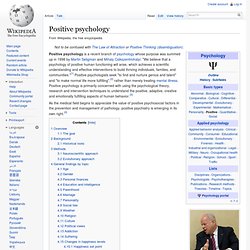

What women are looking for in pick-up lines. - Seriously, Science? Ever wonder whether certain pick-up lines work better than others?

Should you go for the classic “Do you come here often?” Or a simple “Do you have the time?” Here, researchers tested different types of pick-up lines (flippant, direct, or innocuous; see examples below) to determine which type women preferred. It turns out that women looking for a long-term relationship preferred direct or innocuous lines, whereas women looking to hook up preferred attractive men, regardless of the pick-up line. The authors hypothesize that women looking for long-term partners (a “good dad”) view flippant pick-up lines as signs of low trustworthiness and intelligence, while short-term relationship seekers only care about “good genes” for their offspring. An Evolutionary Perspective on Effective vs. “This experiment examined women’s impressions of men using various “pick-up” lines. Bonus excerpt from the main text: Flippant lines 1. Direct lines 1.
The 10 Types of Coaches and How to Spot Them. New ESCAPE. How Covert Agents Infiltrate the Internet to Manipulate, Deceive, and Destroy Reputations. One of the many pressing stories that remains to be told from the Snowden archive is how western intelligence agencies are attempting to manipulate and control online discourse with extreme tactics of deception and reputation-destruction. It’s time to tell a chunk of that story, complete with the relevant documents. Over the last several weeks, I worked with NBC News to publish a series of articles about “dirty trick” tactics used by GCHQ’s previously secret unit, JTRIG (Joint Threat Research Intelligence Group). These were based on four classified GCHQ documents presented to the NSA and the other three partners in the English-speaking “Five Eyes” alliance.
Today, we at the Intercept are publishing another new JTRIG document, in full, entitled “The Art of Deception: Training for Online Covert Operations.” Other tactics aimed at individuals are listed here, under the revealing title “discredit a target”: Then there are the tactics used to destroy companies the agency targets:
The 27 Unspoken Rules Of Wearing A Suit. 21 Habits of Happy People. “Happiness is a habit – cultivate it.” ~ Elbert Hubbard Happiness is one aspiration all people share.

No one wants to be sad and depressed. We've all seen people who are always happy – even amidst agonizing life trials. I'm not saying happy people don't feel grief, sorrow or sadness; they just don't let it overtake their life. The following are 21 things happy people make a habit of doing: 1. 2. 3. 4. 5. Expansion of Consciousness. DMT: The Spirit Molecule. Dimethyltryptamine (DMT) is a naturally occurring hallucinogenic substance that appears in many plants all over the world and even the human body.

Because DMT "is" the spirit molecule, it is the reason we dream and the source of having near death experience. Our bodies produce DMT in our sleep within our brain in the pineal gland, which is considered to be the third eye. Pharmaceutical-grade DMT is the gateway to a myriad trans-dimensional realms that hold the keys of mind-expansion and forbidden knowledge. Spiritual people meditate to self produce DMT into creating a inner world of vision. Dr. Why is DMT illegal if it occurs naturally in everyone's brain? Think about this. Dr. Steve Jobs called LSD “one of the two or three most important things” he'd experienced. However, for decades, the U.S. government banned medical studies of the effects of LSD.
The government does not want us to expand our consciousness. Terence McKenna - Reclaim Your Mind Joe Rogan on Hemp, Marijuana and DMT.
CRAVE: Home. Positive psychology. To Martin Seligman, psychology (particularly its positive branch) can investigate and promote realistic ways of fostering more joy in individuals and communities.

Positive psychology is a recent branch of psychology whose purpose was summed up in 1998 by Martin Seligman and Mihaly Csikszentmihalyi: "We believe that a psychology of positive human functioning will arise, which achieves a scientific understanding and effective interventions to build thriving individuals, families, and communities. "[1] Positive psychologists seek "to find and nurture genius and talent" and "to make normal life more fulfilling",[2] rather than merely treating mental illness. Positive psychology is primarily concerned with using the psychological theory, research and intervention techniques to understand the positive, adaptive, creative and emotionally fulfilling aspects of human behavior.[3] Overview[edit] Research from this branch of psychology has seen various practical applications. The goal[edit]